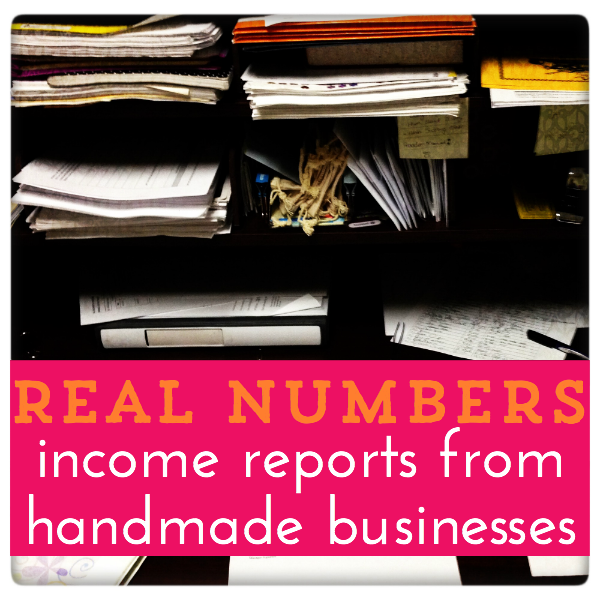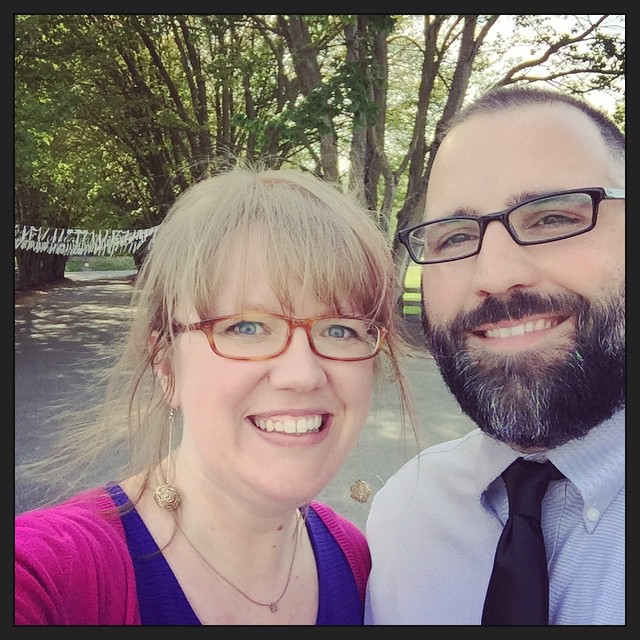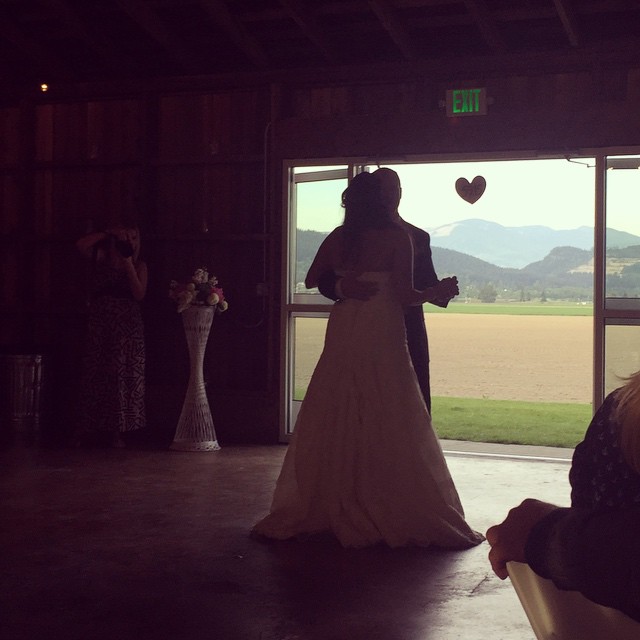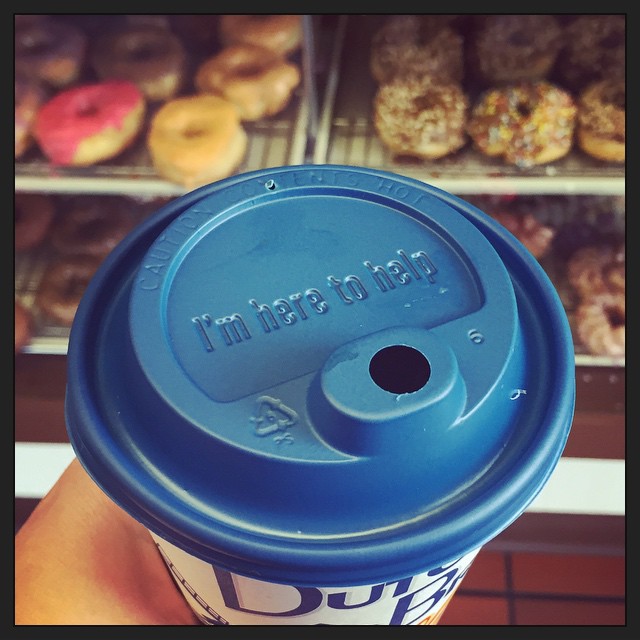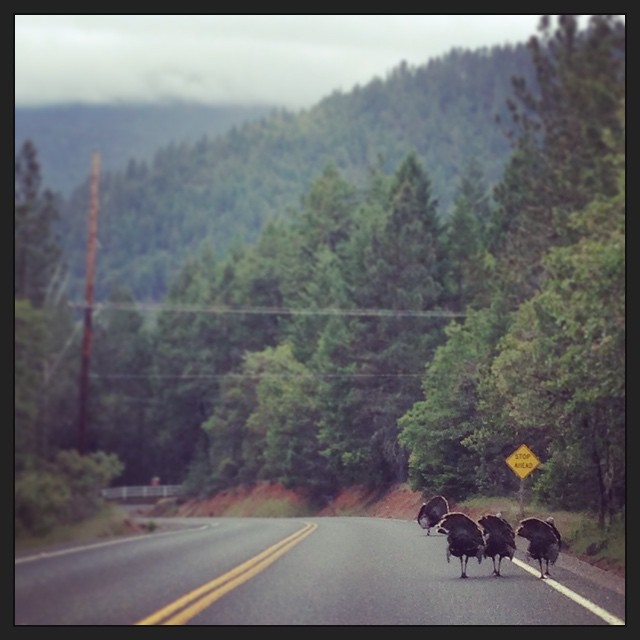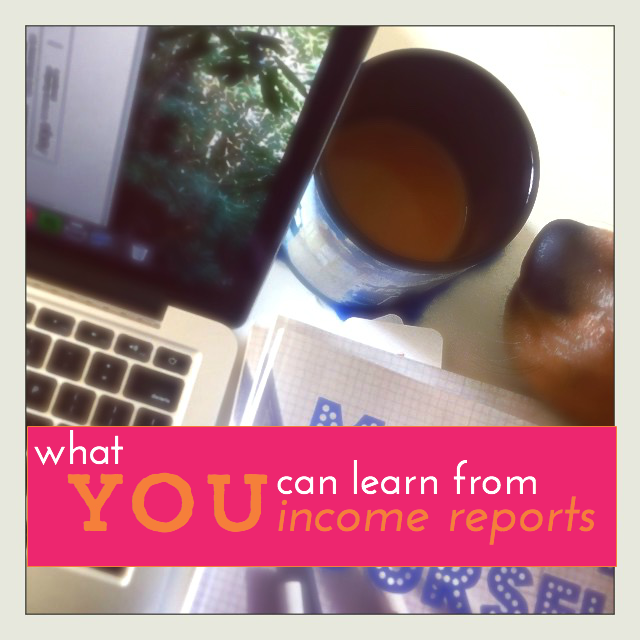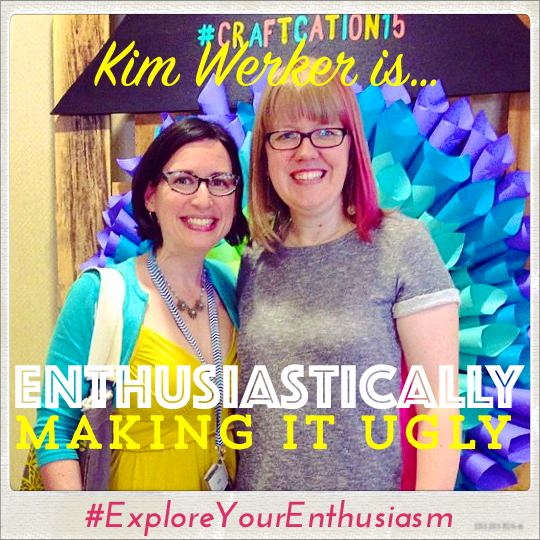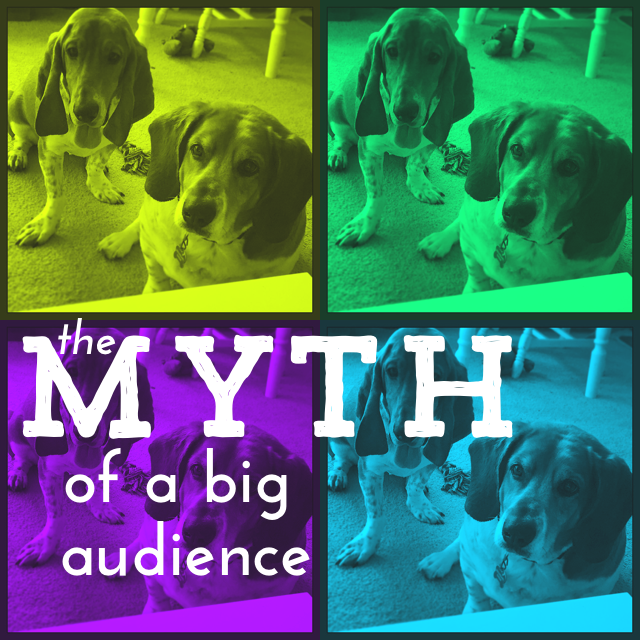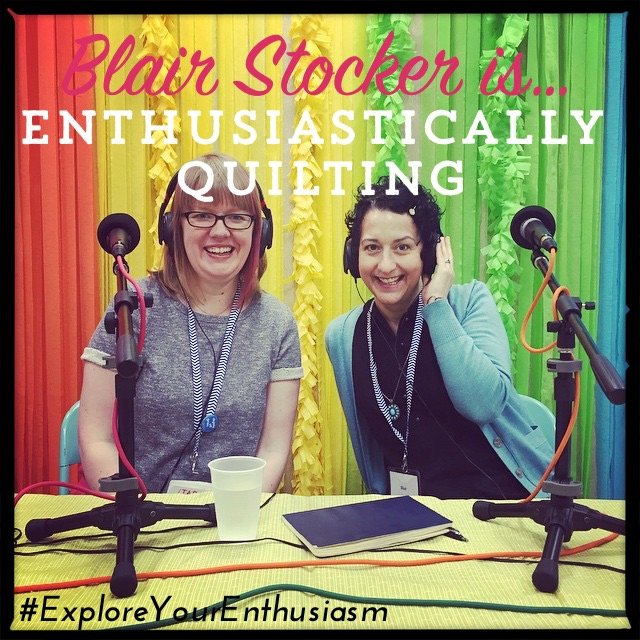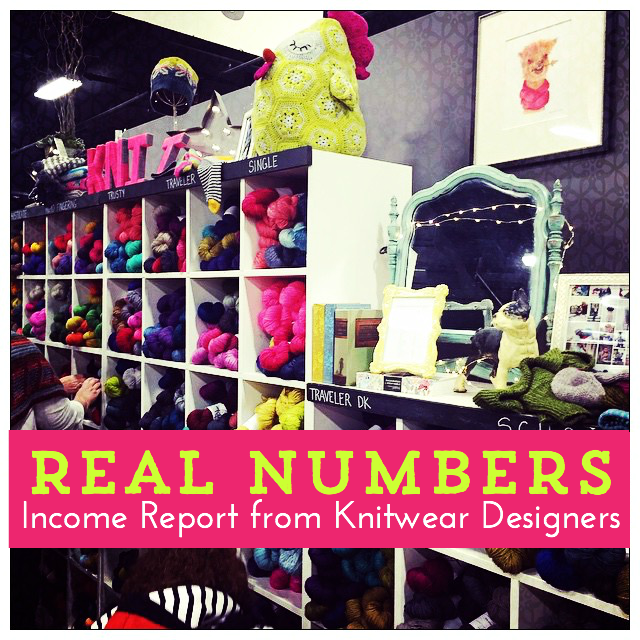
You know I love Income Reports, right? I love reading what’s actually happening in a small business, and I love that people will just share these numbers with us!
Now, not everyone wants to put their income on their website, nor does it make sense for them to! But this means that there are lots of income reports from businesses-who-sell-business-advice but not a lot from other makers.
I set out to remedy that a few weeks ago, and launched the Real Numbers Project. Over 50 (!) of your fellow makers submitted their numbers, and now it’s time to take a look at the results!
I’ve thought long and hard about how to share this info with you, so that it’s as useful to you as possible. I decided to split the responses into two categories: designers (those who sell patterns) + finished-goods makers. There were other businesses who submitted their numbers (thanks!) but not enough to (yet!) put together a comprehensive look at the numbers.
This week I’m sharing the Income Reports of Designers (all of them happen to be knitwear/crochet designers) and next week I’ll send Income Reports of finished-goods makers.
A few things to remember: These numbers represent a TINY slice of possible designers. These are the people who either read my blog, or were sent here by a friend, so I can tell you that they are overwhelmingly women, ages 30-60, who have a college degree or higher, who are VERY comfortable online. That means these numbers don’t represent the many makers who make a living primarily offline.
I chose to share information from the youngest business, the highest and the lowest numbers that were shared with me, along with a few that represented the majority of respondents (both in sales numbers and time in business.) Based on the emails and comments I received, those with the truly lowest numbers (those who are making no money from their business) chose not to fill out the survey. So you should assume that many people make $0. In other words, these numbers aren’t a representative sample of everyone trying to make it as a knitwear designer, they are representative of the people who are making some money as knitwear designers.
Now, before you start reading the numbers, I want you to be aware of two things as you read:
- How do you feel? (Be aware of the Comparison Game, jealousy or disbelief!)
- What can you learn from this business?
Let’s jump in:
The Youngest Business
What do you sell?
Knitting patterns
How long have you been in business?
8 months
How long have you been dedicated to working on it as a business?
3.5 months
What was your gross income from your business last month?
$174.00
How much were your expenses last month?
$150.21
What was your net income?
$23.79
Was the last month normal?
Slightly higher
What else aren't the numbers telling us?
I am still purchasing educational materials to learn more skills.
How do YOU feel about the money in your business?
Hopeless, although I suspect I might be selling more than others who have only been going a few months.
{Tara’s note: Do you see how this maker feels hopeless even though she has an actual profit, after just 3 months of focus? This is totally normal! Use this as a reminder to catch yourself when you start to lose perspective!}
What else do you measure month-to-month?
I track email subscribers, social media followers and number of individual sales.
Where do you think most of your sales come from?
Hard to say. Promoting helps I think but I'm trying so many things I'm not entirely sure which is having the most effect.
If you care about something more than sales, what is that specific number?
Email subscribers to my newsletter is important – 463 signed up since Jan.
What kind of marketing do you do? How do you spread the word about your work?
Instagram, Facebook, (automatically sends Instagram to Twitter), blog, podcast, new Ravelry group.
Is there something in particular that you feel helped your business move forward?
The gradual shift towards believing I could do it. I've been a stay at home mum for over a decade so part of it has been readjusting my beliefs that I'm “working,” not just avoiding housework. I'm not there yet! It's also a major career change from my job before kids so I am working hard at convincing myself that I can actually do this.
Was there anything that you've tried that just did NOT work for you?
It might be too early to say yet. I am doing a scattergun approach to marketing – sort of – and will narrow things down as I figure out what works and what I actually like doing.
What's your goal for your business, big picture? Where do you want it to be?
I want to be able to earn a reasonable income from home so I have flexibility for my children. I would love for my job to encompass more than just designing, I'm working at writing, too, and hope to get work from that. I'd like variety. I'm giving myself a few years to see how this works out.
How do you feel about that?
I feel slightly frustrated that I'm at the beginning, yet that's also exciting. My biggest challenge is time management. And juggling my existing full time job as a mother! I've just hired a cleaner to come once a week. I have got to start making some money! I'm desperately needing to produce more patterns both to get a bigger portfolio and also to learn more. I'm also still finding my style so I’m expecting it'll be a while before I get any real traction.
What was it like answering these questions? How do you feel?
I'm feeling such a mixture of feelings. My suspicion is that lots of new designers are slower to earn money – but maybe I'm deluded about that?! So a part of me is pleased that I'm earning anything at all. But on the other hand I wonder if it appears I'm doing better than I am so I feel a bit of a fraud. I have a deep feeling that I can do this but I need time. The day to day chugging along is becoming more familiar – although a little voice is telling me I might be putting in lots of effort for a pipedream – that only a few people make money in this business. Confused much?!
A typical responder (about half the responses were similar)
What do you sell?
knitting patterns
How do you sell it?
Ravelry
How long have you been in business?
5 years
How long have you been dedicated to working on it as a business?
about 4 years (but only on evenings and weekends)
What was your gross income from your business last month?
$200
How much were your expenses last month?
$2
{Tara’s note: This made me wonder if they counted Paypal fees, website hosting, or anything else?}
What was your net income?
$198
Was the last month normal?
About average. Summer is worse and Nov / Dec is better.
How do YOU feel about the money in your business?
I don't think I earn enough for the hours I put in..
What else do you measure month-to-month?
Total NUMBER of individual sales
Do you focus more on a metric other than money?
Fun. Knitting, designing and selling make me happy. I love seeing people knit my patterns. The cash I make allows me to spend on expensive yarn guilt free.
What kind of marketing do you do? How do you spread the word about your work?
Facebook, Ravelry groups, Pinterest. I don't do much marketing other than being present on social media and engaging with customers. I get a lot of word of mouth recommendations that way.
Is there something in particular that you feel helped your business move forward?
Being brave enough to submit to magazines. The income is more reliable and I reach more potential customers in a different marketplace.
Was there anything that you've tried that just did NOT work for you?
Blogging. I feel uncomfortable and I don't enjoy it enough to make time to do it regularly. I'm much happy chattering on Facebook and posting tutorials on my website.
What's your goal for your business, big picture? Where do you want it to be?
I want to retire early (in about 20 years time). I have pensions which will provide the bulk of my income but I would like knitting pattern sales to provide a reliable income for treats.
In the meantime I want it to keep me in yarn & patterns.
What was it like answering these questions?
I did Pay Yourself so I understand where I am and I'm OK about it.
Anything else you want to tell me or other creatives about your numbers or your feelings about them?
I don't ever expect knitting to provide a living wage. I treat this like a business but it's really a hobby that pays.
{This is super important to note! She’s clear about the kind of business she wants, and what she expects from it!}
The Lowest Net (but look at the gross and the reason why!)
What do you sell?
PDF patterns, some kits, tools, supplies
How long have you been in business?
4 years
What was your gross income from your business last month?
$5,823.27
How much were your expenses last month?
$6,601.32
What was your net income?
$-778.05
Was the last month normal?
Pretty normal for a March for me, up 20% from last year which is my goal for this year most every month.
What else aren't the numbers telling us?
I made a downpayment last month on a new website – a huge investment for me. It's going to eat all my income for the next few months (actually – it will cost the entire 20% increase in my gross projected for this year) but it will pay off for years to come. I'm very excited about taking this step!
How do YOU feel about the money in your business?
Awesome! I'm actually making a living at this!
Where do you think most of your sales come from?
my newsletter subscribers and regular customers
What kind of marketing do you do? How do you spread the word about your work?
Almost entirely by newsletter. I have almost 7500 subscribers and that's increasing by about 300 every month. I use Facebook to chat with customers and Twitter to chat with colleagues. My YouTube videos also drive a lot of traffic.
What's your goal for your business, big picture? Where do you want it to be?
In four years I want my average gross monthly revenue to be $10,000.
How do you feel about that?
Like it's pretty doable. Last year my goal was to double my sales and I did that. If I can increase 20% a year for the next four years I'll be there – and I'm on track for that so far this year.
What was it like answering these questions? How do you feel?
I feel so PROUD that I have a thriving and growing business that brings such satisfaction to so many people!
{YAY!}
Anything else you want to tell me or other creatives about your numbers or your feelings about them?
Don't rely on anyone else to bring you business. My shop is self hosted and I don't rely on Facebook or anyone else's algorithms. I built my customers one by one. That seems really slow when you're starting – but it's pretty incredible how those single customers add up.
A typical responder (the other half of middle responses were similar)
What do you sell?
Knowledge: Patterns, Authorship, Workshops, Consulting
How long have you been in business?
3 + years
What was your gross income from your business last month?
$1,616
How much were your expenses last month?
$353
What was your net income?
$1,260
Was the last month normal?
Average gross sales are about $2,200
What else aren't the numbers telling us?
I am overly cautious with investment in the business. Don't spend what I don't have. My main commodity is TIME.
How do YOU feel about the money in your business?
I'm happy to have turned a profit from day one, but still struggle with getting enough for capital investments and bigger risks
What else do you measure month-to-month?
- Website traffic
- Email subscribers
- Social media followers
Do you focus on something other than money? What’s that number?
Engagement numbers—mailing list, social media
300 email subscribers—want 1,000 by end of year
Where do you think most of your sales come from?
Mentions online, my own blog posts and newsletters
What kind of marketing do you do? How do you spread the word about your work?
email newsletter, blog, social media (Instagram, Twitter, Pinterest, Twitter, Facebook, YouTube), trade shows, teaching, publishing projects
Is there something in particular that you feel helped your business move forward?
Networking with other small business owners and not being afraid to let my petticoats show.
Was there anything that you've tried that just did NOT work for you?
Trying to work with folks that don't understand the maker market—big box marketing. Folks whose heart is in Marketing with a capital M and not Making with a capital M.
What's your goal for your business, big picture? Where do you want it to be?
To be able to support my monetary, social, and emotional obligations to my family while working as a freelancer in a small town with very few other opportunities in my field (or any field). I'd like to double my business income over the next two years and keep my expenses to about a quarter of my income.
How do you feel about that?
Like it's pretty doable. Last year my goal was to double my sales and I did that. If I can increase 20% a year for the next four years I'll be there – and I'm on track for that so far this year.
What was it like answering these questions? How do you feel?
That I really do have a plan!
{YAY!}
Anything else you want to tell me or other creatives about your numbers or your feelings about them?
I feel very lucky to be able to pursue my goals.
The Highest Numbers:
What do you do?
I'm a knitwear designer, instructor, author and run a craft website.
What do you sell?
Patterns, yarn-based products
How long have you been in business?
7 years
What was your gross income from your business last month?
$14,500
How much were your expenses last month?
$5,800
What was your net income?
$8,666
Was the last month normal?
There are higher and lower months, but this is a pretty normal month.
What else aren't the numbers telling us?
It's incredibly hard to make a living selling $5 patterns. This number includes income from books (which have been written over a number of years), classes as well as product sold on my site, including a subscription-based product.
How do YOU feel about the money in your business?
I'm pleased.
What else do you measure month-to-month?
Social media followers + email subscribers
Where do you think most of your sales come from?
My website
Do you focus more on a metric other than money?
Yes, I definitely care far more about the spare time/flexibility I have, because my life is more important than cash 🙂
What kind of marketing do you do? How do you spread the word about your work?
Only organic tweeting/blogging/stuff. Very little paid advertising (prolly $40 total in Rav ads)
Is there something in particular that you feel helped your business move forward?
My Craftsy class was a huge leap forward, mostly in terms of street cred. Having a subscription-based service has also helped tremendously in terms of providing a more steady/reliable income.
Was there anything that you've tried that just did NOT work for you?
More complicated patterns are NOT what my customers are interested in. Giving away a free pattern also didn't work well, because I find that folks looking for a free pattern are looking for free and don't convert into buying patterns.
What's your goal for your business, big picture? Where do you want it to be?
It's my happiness. I want to keep a flexible schedule and have a job that's intellectually interesting.
What was it like answering these questions? How do you feel?
I usually ask myself these same questions 🙂
Anything else you want to tell me or other creatives about your numbers or your feelings about them?
Having a business takes a long time to build. I've talked to lots of people in this industry, and no one is making a living because they ‘had a lucky break'. Luck may play into one pattern release, but a successful business is the result of hard work and persistence.
**
So, what did you learn? Did this give you ideas (or clarity) for your own business?
Remember, there is no good or bad, it’s all just data. There’s what you want and what you don't want.
But you have to have your own data. If you don’t know your numbers, Pay Yourself will walk you through figuring it all out.
Above all, I hope this showed you that you can build whatever kind of business you want, as long as you know what it is and you’re ready to commit to the work it’ll take.
PS. A GIANT thank you to those who shared their numbers so generously. As I hope you can see, your numbers provide both reality and encouragement to others who are struggling.


